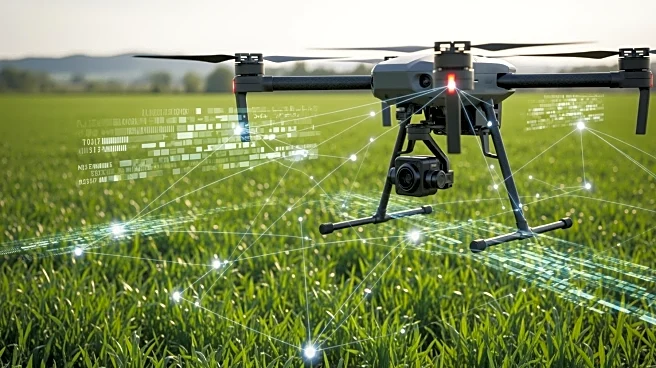What's Happening?
The Europe precision planting market is projected to grow significantly, reaching $974 million by 2035, driven by the adoption of IoT, GPS, AI, and automation systems. The market, which was valued at $523.5
million in 2024, is expected to expand at a CAGR of 5.73% from 2025 to 2035. This growth is fueled by the increasing demand for sustainable food production and the need to optimize agricultural output without expanding farmland. Precision planting technologies, such as GPS-guided planters and multi-hybrid planters, are helping European farmers improve seed depth and spacing, enhancing germination and yield. These advancements align with the EU Green Deal and Farm-to-Fork programs, promoting resource efficiency and climate-smart agriculture.
Why It's Important?
The expansion of the precision planting market in Europe is crucial for addressing food security and sustainability challenges. As the EU's population grows and global food demands increase, precision planting offers a solution to maximize agricultural productivity on limited arable land. The integration of advanced technologies like IoT and AI in farming practices supports the EU's environmental goals and enhances the resilience and profitability of European agriculture. However, the high implementation costs and lack of digital infrastructure in some areas pose challenges to widespread adoption. Overcoming these obstacles through supportive policies and farmer training will be key to realizing the full potential of precision planting.
Beyond the Headlines
The precision planting market's growth reflects broader trends in agricultural modernization and digital transformation. As European farmers increasingly adopt smart farming technologies, the industry is likely to see increased collaboration between tech companies and agricultural stakeholders. This could lead to innovations in farm management software and automation systems, further driving efficiency and sustainability in agriculture. Additionally, the focus on climate-smart practices may influence global agricultural policies, encouraging other regions to adopt similar technologies to address environmental and food security challenges.








